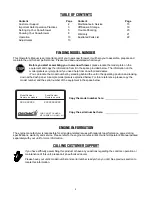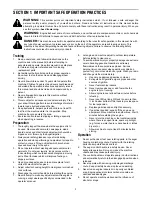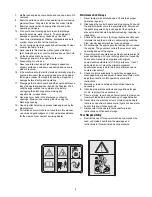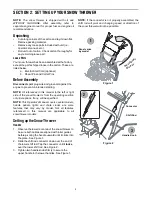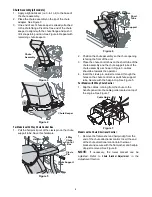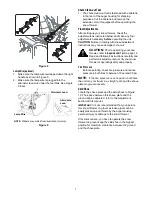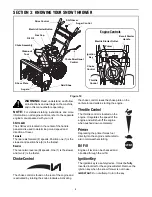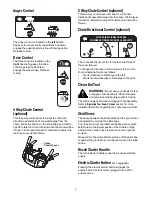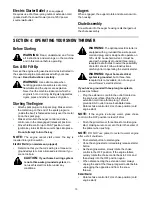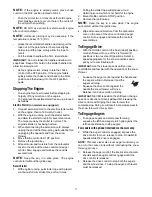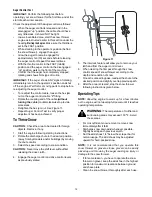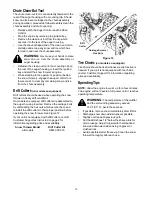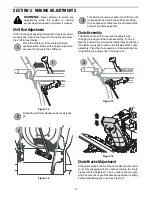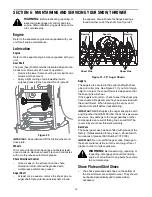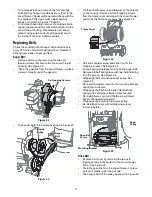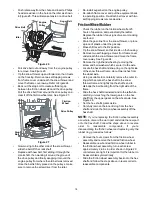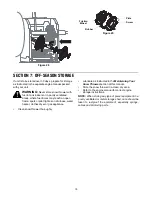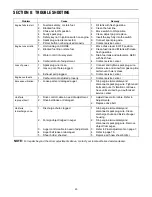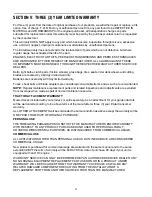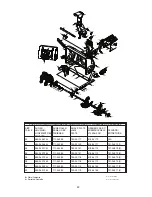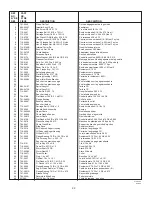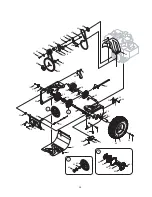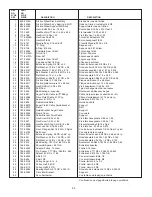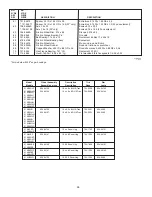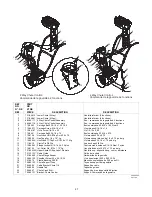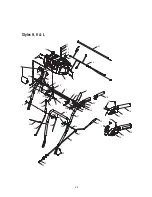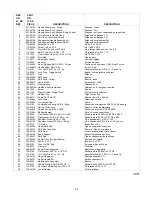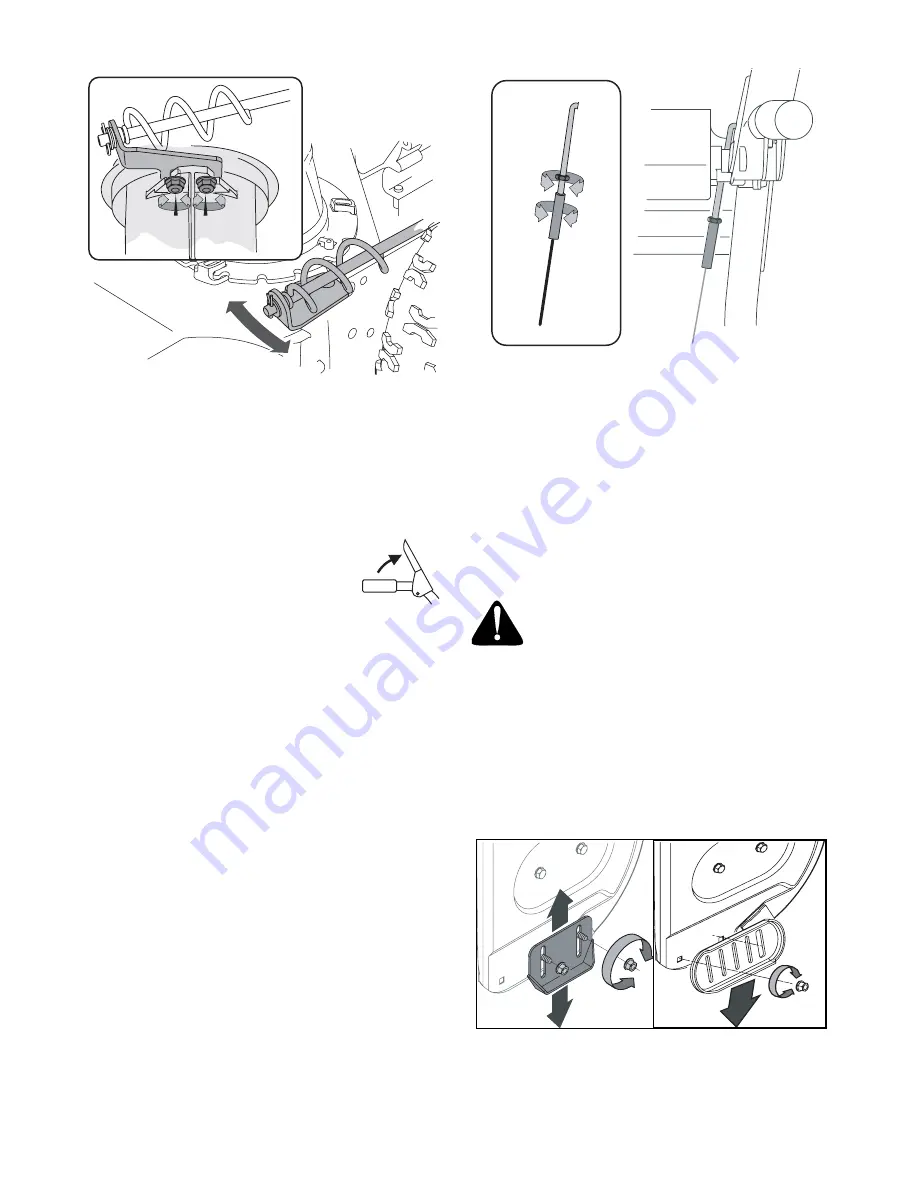
15
.
Figure 17
Drive Control
When the drive control is released and in the
disengaged “up” position, the cable should have very
little slack. It should NOT be tight.
Check the adjustment of the drive control as follows:
1.
With the drive control disengaged,
push the snow thrower gently
forward. The unit should roll freely.
2.
Engage the drive control and gently
attempt to push the snow thrower
forward. The wheels should not turn.
The unit should not roll freely.
3.
With the drive control disengaged, move the shift
lever back and forth between the R2 position and
the F6 position several times. There should be no
resistance in the shift lever.
If any of the above tests failed, the drive cable is in need
of adjustment. refer to Figure 18 and proceed as
follows:
•
Loosen the hex jam nut on the auger control cable
“Z” fitting and rotate the coupling end (without
turning the cable) of the cable downward to
provide more slack or upward to take up slack. See
Figure 18 .
Auger Control
Refer to
Auger Control Test
on Page 12 to adjust the auger
control.
Figure 18
Skid Shoes
NOTE: The space between the skid shoes and the
ground can be adjusted. See Figure 19. For close snow
removal, place skid shoe in the low position. Use
middle or high position when area to be cleared is
uneven.
NOTE:
Some models are equipped with reversible skid
shoes and may be turned over to increase their
lifespan. See Figure 19.
CAUTION:
Loose gravel can be picked up
and thrown by the auger, causing injury to the
operator and bystanders and/or damage to
the snow thrower and surrounding property.
•
Adjust skid shoes by loosening the four hex nuts
(two on each side) and carriage bolts. Move skid
shoes to desired position.
•
Make certain the entire bottom surface of skid shoe
is against the ground to avoid uneven wear on the
skid shoes. Retighten nuts and bolts securely.
•
Retighten the hex jam nut and repeat all three tests
to verify proper adjustment has been achieved.
Figure 19- Skid Shoes
Disengaged
Standard
Reversible


